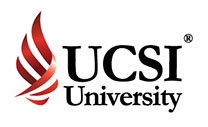| Exam Body | Internal Degree, Malaysia | |||||||||||
|---|---|---|---|---|---|---|---|---|---|---|---|---|
| Course Duration | 3 Yrs | |||||||||||
| Part Time/Full Time | Full Time | |||||||||||
| Fees | 78700/Course | |||||||||||
| Fees (International Student) | 86470/Course | |||||||||||
| Campus | UCSI University, Kuala Lumpur Campus | |||||||||||
| Faculty | Faculty of Engineering, Technology & Built Environment | |||||||||||
| Conducted entirely in Malaysia | Yes | |||||||||||
| Awarding Country | Malaysia | |||||||||||
| Level of Study | Bachelor's Degree Level | |||||||||||
| Field of Study | Engineering & Engineering Trades | |||||||||||
| Course Description | Chemical engineers are known as the universal engineers of all time and are well-versed in converting raw materials to more practical forms by applying both physical sciences and life sciences. Fusing chemistry, biology, microbiology and biochemistry with mathematics, this branch of engineering is versatile and allows room for specialisation in many areas, such as nanotechnology, re?ning, bio-diesel production and petrochemical production, to name a few.
| |||||||||||
| Curriculum |
All information is correct at the time of upload and UCSI University reserves the right to make amendments without prior notice. | |||||||||||
| Entry Requirements | For Engineering degree: STPM Minimum 2C including Mathematics and Physics ‘A’ Levels Minimum 2D including Mathematics and Physics UEC Minimum 5 credits, including Mathematics and Physics CPU CPU – Minimum average of 60% in 6 subjects, incl. of a minimum score of 60% in Mathematics and Physics Local Matriculation Minimum CGPA 2.0 Foundation from other University/ College Minimum CGPA 2.0 WAEC/NECO Maximum aggregate of 15 points out of best 5 subjects, inclusive of minimum B’s in Mathematics and Physics Diploma/ Advance Diploma/ Degree/ equivalent Pass (Subject to School discretion after reviewing transcript & syllabus. Max credit transfer of 30%) Other qualifications deemed equivalent to STPM/A-Level by MQA Minimum overall average of 65%, inclusive of minimum 65% in Mathematics and Physics International Baccalaureate Minimum 26/42 points from 6 subjects (Minimum scores of 4/7 in Mathematics & Physics) SAM SAM – Minimum average of 65% in 5 subjects, incl of minimum scores of 65% in Mathematics and Physics *Chemistry is required for Chemical Engineering; Physics is required for all other programmes. For Engineering Diploma, Interior Architecture and Architecture programmes, please refer to http://www.ucsiuniversity.edu.my/foetbe/ for more details. | |||||||||||
| Intake Months | April, September, December | |||||||||||
| Career Prospects | The programme is an excellent preparation for a career in the chemical engineering fields, such as the oil and gas industry, commodity chemicals, specialty/consumer chemicals and advanced materials. Chemical engineers can also be employed in other manufacturing industries such as electrical, electronics, pulp and paper products, medicine and healthcare, as well as the heavy machinery industry.
|
All fees are in RM (Ringgit Malaysia) currency unless stated otherwise.
Other Courses in this Level of Study Other Courses in this Field of Study

























